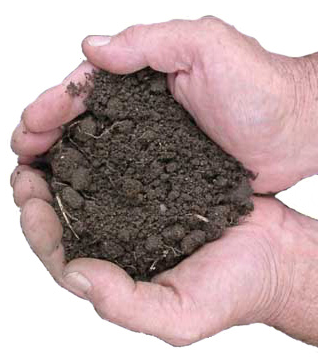Soil Analysis
Understanding and maintaining the health of soils can provide the agricultural and horticultural industries with a foundation for sustainable practices and increased productivity. Soils also have a significant impact on proposed land developments, in regards to identifying any limitation of a proposed development.
Our soil testing laboratories in Forrestdale can undertake a range of soil analyses to assist you in identifying the Physical, Chemical and/or Biological characteristics of your soil. The average turn-around-time for a standard analysis is seven working days. The analysis results come with concise interpretations and recommendations for soil improvement.
Physical Tests
Soil Preparation for Testing (AS1289.1)
Soil Moisture Content Testing (AS1289.2)
Soil Classification Testing (AS1289.3)
Soil Chemical Testing (AS1289.4)
Soil Compaction and Density Testing (AS1289.5)
Soil Strength and Consolidated Testing (AS1289.6)
Soil Reactivity Testing (AS1289.7)
Chemical Tests
Chemical analysis of agricultural and contaminated soils for (AS4764)
Total Carbon and Sulfur
Extractable Nitrogen, Potassium, Calcium, Magnesium, Iron, Coper, Zinc, and Manganese.
Heavy metal contaminants
Acid Sulfate Soils SPOCAS suite (AS4969.12)
Hydric Soils
Electrical conductivity and Acidity (pH)
Assessment and formulation of pre-planting soil treatment and fertiliser programs
Identification of soil type for suitable cropping species
Biological Tests
Phytophthora cinnamomi (Jarrah dieback)
Nematodes
Soil Respiration
Total Microbial Biomass
Microbial Diversity
DNA-based species presence (e.g. pathogens, fecal sources)
Commercial Soils
Composts, soil conditioners and mulches (AS4454)
Potting mixes (AS3743)
Soils for landscaping and garden use (AS 4419)
Bioscience specialises in undertaking an appropriate suite of tests specific to individual client needs. These typically involve a range of physical, chemcial and biological tests
Soil Collection Methods
a) Uniform Fields
For sites where no amendments have been applied, collect a composite sample of 10 - 20 core samples taken to a depth of 15 cm (depending on crop type). Analysis of fertilised fields requires a composite sample of 30 - 40 core samples. About 2 to 4 litres of soil should be collected and thoroughly mixed. We only require about 200 g for analysis. A simple random or systematic design is used for sampling (Figure 1).

b) Variable Fields
Where crop growth is clearly variable within a field, collect composite samples within each area showing poor, average and good growth using the sampling techniques outlined above.
For measuring soil carbon for carbon trading purposes Kyoto compliant sampling methods are required. Contact us for detailed protocols.
Note that detailed soil surveys are necessary to assess the suitability of land for vineyards and tree crops. This involves digging pits to 3 meters depth to determine soil and subsoil depth, drainage, water holding capacity and mechanical properties. Bioscience provides a range of services for clients interested in site appraisals, layout and implementation.
Wet soil samples should be placed in clean plastic bags or containers. Heavy-duty paper bags can be used for dry samples. Transport samples to our laboratory as soon as possible.
Because certain characteristics of soil change with time it is essential that soil is analysed as soon as practical. If it cannot be tested within 24 hours of sampling soil should be frozen to reduce changes due to biological and chemical activity.